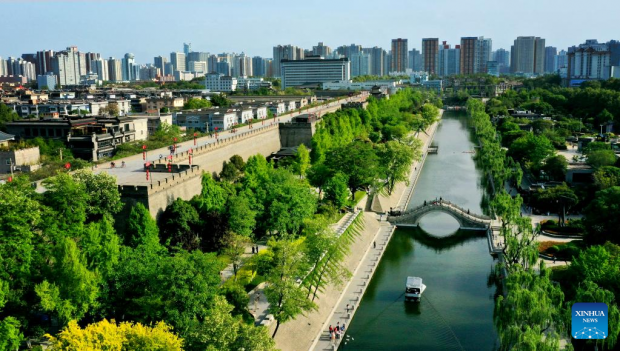
China-Central Asia Summit milestone in promoting regional stability, development

BISHKEK: An upcoming summit of six presidents will open a new chapter in relations between China and Central Asian countries and promote regional stability and development, Nurzhan Kasmalieva, head of the international department of Kyrgyzstan’s Kabar state news agency, has said.
China and Central Asia will hold their first in-person high-level meeting in the northwestern Chinese city of Xi’an, the capital of China’s northwestern Shaanxi Province that last month hosted the meeting of the foreign ministers of the six countries. Xi’an is also the starting point of the ancient Silk Road.
The Chinese foreign ministry announced that President Xi Jinping would chair the two-day inaugural summit to be attended by the leaders of the five Central Asian states – Kazakhstan, Tajikistan, Uzbekistan, Kyrgyzstan and Turkmenistan.
The summit on May 18- 19 signifies a solid partnership between China and five Central Asian countries, Kasmalieva said.
“Terrorism and extremism pose a threat and challenge to the security of Central Asia at any time, and it is hoped that more security cooperation results can be achieved at the meeting, therefore promoting security and stability in the region,” told Xinhua in an interview.
Kasmalieva said that economic prosperity is a prerequisite for peace and stability and that the summit is expected to reach more consensus on economic cooperation.
“I expect the summit to provide more convenience for personnel exchanges between Kyrgyzstan and China,” Kasmalieva was quoted as saying.
More people-to-people exchanges can enhance the feelings and understanding between people of different countries, she added.
“The summit will provide a fresh platform for Central Asian nations to enhance their collaboration with China and further advance cooperation under the Belt and Road Initiative,” she said.

Kazakhstan, Kyrgyzstan, Tajikistan, Turkmenistan and Uzbekistan were once a part of the former Soviet Union.
They have long been considered major areas of Russia’s post-Cold War sphere of influence.
However, Western sanctions against Russia and global geopolitical developments have recently created an economic vacuum in the region.
Beijing is endeavoring to seize the opportunity and boost strategic cooperation with the five Central Asia countries, mainly through its Belt and Road Initiative.
In 2022, trade between China and the Central Asian countries reached US$70.2 billion, a record high.


